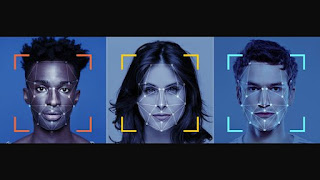Is facial recognition technology biased? Let’s find out!
Buolamwini and Gebru's landmark study in 2018 sparked widespread attention as it exposed the racial biases embedded in facial analysis algorithms. Their research demonstrated that these algorithms exhibited a significant misclassification rate of Black women, reaching nearly 35 percent, while performing exceptionally well for white men. This disparity exposed a fundamental flaw in the technology's ability to accurately identify individuals across different racial backgrounds.
Subsequent studies conducted by Buolamwini and Raji at MIT further validated the persistent issues of racial biases in facial recognition technology, particularly with respect to major software providers like Amazon. The findings revealed a troubling trend where gender misidentification occurred in different racial and gender groups. Lighter-skinned males experienced misidentification in less than one percent of cases, while lighter-skinned females faced misidentification in up to seven percent of cases. The problem exacerbated for darker-skinned individuals, with misidentification rates reaching up to 12 percent for darker-skinned males and a staggering 35 percent for darker-skinned females.
The biases ingrained in facial recognition algorithms can be attributed to several factors. One prominent cause is the skewed data sets used to train these algorithms. Historical imbalances in data collection, which predominantly focused on lighter-skinned individuals, have perpetuated biases and led to underrepresentation and misidentification of darker-skinned individuals. Additionally, the lack of diverse development teams and inadequate testing in diverse environments have further exacerbated the biases, limiting the technology's efficacy and fairness.
The ramifications of racial bias in facial recognition technology are far-reaching. Misidentification and discrimination based on race have profound consequences, both in everyday scenarios and in critical domains such as law enforcement and surveillance. Innocent individuals may face wrongful accusations, while others may suffer from biased profiling and surveillance, leading to a erosion of civil liberties and social injustices.
Addressing the biases in facial recognition technology requires a multi-faceted approach. Firstly, there is a pressing need for comprehensive data collection that reflects the racial diversity of the population. This would ensure that algorithms are trained on more inclusive data sets, reducing the prevalence of biases. Additionally, increased transparency and accountability in algorithm development, along with independent audits and standardized testing protocols, can help identify and rectify biases before deployment.
The groundbreaking research conducted by scholars at MIT's Media Lab has exposed the racial biases deeply embedded within facial recognition technology. The findings serve as a clarion call for urgent action and ethical considerations in the development, deployment, and regulation of these technologies. By acknowledging the existence of biases, promoting diversity in development teams, and implementing stringent testing and evaluation mechanisms, we can work towards a future where facial recognition technology is unbiased, equitable, and respects the rights and dignity of all individuals.
